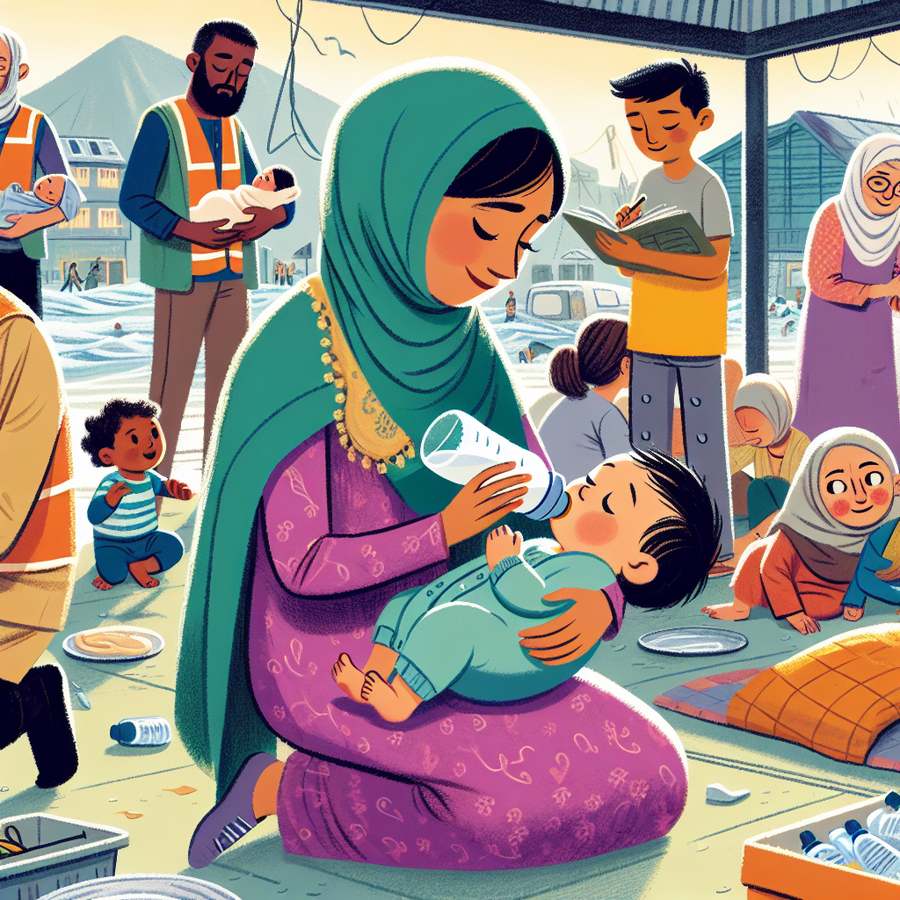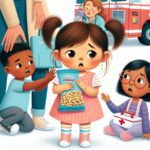Emergency nutrition: Keeping baby fed during natural disasters is a paramount concern for parents and caregivers. Natural disasters can strike unexpectedly, disrupting the normalcy of daily life and making it challenging to access necessities, including baby food and clean water. This guide will explore the essentials of emergency nutrition for infants, ensuring that the little ones remain nourished and safe even in the toughest situations.
Understanding the Importance of Emergency Nutrition for Babies
In the wake of a natural disaster, obtaining fresh, safe food and clean water can become a significant challenge. For babies, who have specific nutritional needs, this scenario can be particularly critical. Emergency nutrition: Keeping baby fed during natural disasters involves planning and having the right supplies on hand to meet their dietary requirements. It’s not only about having enough food but also ensuring the food is safe, nutritious, and suitable for the baby’s developmental stage.
Infants are at a higher risk of malnutrition, dehydration, and illness in emergencies due to their vulnerable immune systems and specific dietary needs. Therefore, it’s essential to prioritize their nutrition and hydration. By preparing in advance and understanding what supplies and strategies are needed, parents can ensure their babies remain healthy and well-fed even when access to regular food sources is compromised.
Emergency Nutrition: Keeping Baby Fed During Natural Disasters
To effectively manage emergency nutrition for your baby, it’s crucial to focus on both preparation and adaptation. This means having a well-thought-out plan that includes storing appropriate food supplies, understanding how to utilize what’s available, and knowing how to ensure food safety during power outages or when clean water is scarce.
A key component is having a supply of non-perishable baby food, such as pre-packaged baby jars or pouches, which can last through the disaster period. For breastfeeding mothers, maintaining hydration is vital for milk production, and having a manual pump can be a lifesaver if electric power is lost. Additionally, for formula-fed babies, having a sufficient stock of formula along with sterilized water for mixing is essential. Consider also the importance of sanitizing feeding equipment, even in challenging conditions, to prevent illness.
For detailed guidance on breastfeeding during emergencies, visit Breastfeeding Tips for Mothers with Low Milk Supply.
Preparing Your Emergency Baby Nutrition Kit
Having an emergency nutrition kit for your baby is a fundamental part of disaster preparedness. This kit should be readily accessible and include a variety of items tailored to your baby’s age and dietary needs. Essential components of a baby’s emergency nutrition kit include a supply of baby formula or powdered milk (for non-breastfed babies), bottled water or water purification tablets, pre-packaged baby food, a manual breast pump, sterilizing equipment for bottles and nipples, and a portable, insulated cooler for storing breast milk or prepared formula.
It’s also wise to include practical items like a can opener for canned food, a small stove or heating mechanism for warming food when possible, and baby utensils. Remember, the goal is not only to feed your baby but to ensure the feeding process is as safe and clean as possible under the circumstances.
For tips on formula feeding during emergencies, see our article on Formula Feeding Schedule for a 2-Month-Old.
Adapting to Changing Conditions: Tips and Strategies
In the unpredictable environment of a natural disaster, flexibility and adaptation are key. If you find yourself without access to your usual baby food supplies, consider alternative nutrition sources. For older babies, certain adult foods can be mashed or pureed. However, always be cautious about potential allergens and ensure the food is age-appropriate and safe.
Hydration is another critical aspect. Babies, especially those under six months who are exclusively breastfed or formula-fed, typically do not need additional water under normal circumstances. However, in hot weather or if the baby shows signs of dehydration, offering small amounts of clean water can be necessary. Always consult with a healthcare provider for guidance tailored to your baby’s specific needs.
Discover more about managing dehydration in infants at Signs of Dehydration in Toddlers and Prevention Tips.
For comprehensive strategies on feeding babies in emergencies, the World Health Organization (WHO) and the United Nations Children’s Fund (UNICEF) offer extensive resources and guidelines that can be invaluable for parents and caregivers.
Emergency nutrition: Keeping baby fed during natural disasters requires foresight, preparation, and the ability to adapt to challenging situations. By taking the steps outlined in this guide, you can ensure that your baby remains nourished, hydrated, and healthy, no matter what nature throws your way.













